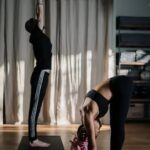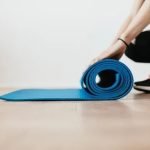What are realistic goals for fitness with 12 yr olds? When it comes to the physical health and well-being of 12-year-olds, it’s crucial to set achievable fitness goals.
In this article, we’ll explore the significance of fitness for children in this age group and how to establish realistic objectives that promote a healthy lifestyle. From physical activity guidelines to the role of nutrition, we’ll delve into essential factors in creating a fun and engaging fitness plan for 12 Yr Olds.
As children transition from childhood to adolescence, their bodies undergo significant changes, making regular physical activity essential for overall health and development. Understanding the importance of fitness for 12 Yr Olds is crucial in promoting good habits that will benefit them throughout their lives. By setting realistic fitness goals, we can help preteens cultivate positive attitudes towards exercise and lead active lifestyles.
In this section, we’ll discuss why setting realistic fitness goals is vital for 12 Yr Olds. We’ll explore how achievable objectives can boost confidence, promote discipline, and instill a sense of accomplishment in young individuals. Ultimately, understanding the significance of fitness at this age allows us to empower 12-year-olds to prioritize their health and well-being as they grow older.
Physical Activity Guidelines for 12 Yr Olds
According to the Centers for Disease Control and Prevention (CDC), 12-year-olds should engage in at least 60 minutes of physical activity every day. This includes a combination of aerobic activities, muscle-strengthening exercises, and bone-strengthening activities. The CDC also recommends that children and adolescents incorporate vigorous-intensity activities at least three days per week.
In addition to the CDC’s guidelines, experts also recommend that 12-year-olds participate in a variety of physical activities to promote overall fitness. This can include team sports, individual sports, recreational activities, and non-competitive physical activities such as hiking, biking, or swimming. Encouraging diverse physical activities not only helps in achieving fitness goals but also helps in preventing boredom and burnout from repetitive workouts.
Experts also emphasize the importance of age-appropriate exercises for 12-year-olds. This means incorporating exercises that are suitable for their developing bodies and taking into account their varying levels of physical maturity.
It is important to avoid putting too much pressure on young individuals to achieve specific fitness milestones and instead focus on promoting a love for movement and physical activity. By following these recommendations from experts, parents and caregivers can effectively support 12-year-olds in their journey towards improved fitness while keeping their health and safety a top priority.
Setting Realistic Fitness Goals for 12 Yr Olds
Setting realistic fitness goals for 12-year-olds is essential for their overall physical and mental development. It’s important to establish achievable targets that will not only enhance their physical capabilities but also boost their self-confidence and motivation. By setting realistic fitness goals, 12-year-olds can experience a sense of accomplishment and progress, which will encourage them to continue leading an active lifestyle.
So, what are realistic goals for fitness with 12-year-olds? Here are some factors to consider when establishing these objectives:
Factors to Consider:
1. Age-appropriate activities: Ensuring that the fitness goals are suitable for a 12-year-old’s level of physical development and maturity.
2. Individual abilities: Recognizing that each child has different strengths and limitations, it’s crucial to tailor fitness goals to each child’s capabilities.
3. Long-term impact: Focusing on fostering habits that will benefit them in the long run rather than short-term gains.
Sample Realistic Fitness Goals for 12 Yr Olds:
It’s important to remember that the primary goal of setting realistic fitness objectives for 12-year-olds should be centered around promoting a healthy lifestyle rather than achieving specific performance-related outcomes. By focusing on overall wellness, children can develop positive attitudes towards exercise and health that will last a lifetime.
Factors to Consider When Setting Fitness Goals for 12 Yr Olds
When setting fitness goals for 12 year olds, it’s important to take into consideration a variety of factors that can impact their physical development and overall well-being. Understanding these factors can help in setting realistic and achievable goals that promote a healthy lifestyle for young individuals.
One key factor to consider when setting fitness goals for 12 year olds is their current level of physical activity. This includes the type and frequency of activities they are currently engaged in, as well as any sports or extracurricular activities they may be involved with. By taking into account their existing activity level, it becomes easier to set goals that build upon their current abilities and gradually introduce new challenges.
Another important factor to consider is the individual preferences and interests of the 12 year old. Not all children enjoy the same types of physical activities, so it’s crucial to take into account what they enjoy doing and how they prefer to stay active. Whether it’s through team sports, individual exercise routines, or outdoor recreational activities, tailoring fitness goals to align with their interests can help keep them motivated and engaged.
It’s also essential to consider the developmental stage of 12 year olds when setting fitness goals. At this age, children go through rapid growth spurts and changes in their body composition. Understanding these physiological changes can help in establishing appropriate strength, endurance, and flexibility goals that support their overall growth and development.
| Factor | Consideration |
|---|---|
| Physical Activity Level | Evaluating current activities and sports |
| Preferences and Interests | Tailoring fitness goals to align with personal interests |
| Developmental Stage | Understanding growth spurts and body changes at age 12 |
Sample Realistic Fitness Goals for 12 Yr Olds
As 12-year-olds continue to grow and develop, it is important for them to start setting realistic fitness goals. This age is a crucial time for physical development, and incorporating strength, endurance, and flexibility activities into their routine can have long-lasting benefits. It’s important to understand what are realistic goals for fitness with 12 yr olds.
Strength
One of the key components of a well-rounded fitness routine for 12-year-olds is building strength. Setting realistic strength goals can include activities such as bodyweight exercises, resistance band workouts, and even light weightlifting with proper supervision. Encouraging 12-year-olds to work towards realistic strength goals can help them build muscle mass, improve bone density, and enhance overall physical performance.
Endurance
When it comes to endurance, setting realistic fitness goals for 12-year-olds can involve activities that improve cardiovascular health and stamina. These may include running or jogging a certain distance within a specific time frame, cycling for an extended period, or participating in team sports that require continuous movement. By setting achievable endurance goals, 12-year-olds can enhance their physical stamina and overall cardiovascular health.
Flexibility
Flexibility is another important aspect of fitness that should not be overlooked when setting realistic goals for 12-year-olds. Engaging in activities like yoga, Pilates, or stretching routines can help improve flexibility and range of motion. Setting attainable flexibility goals can contribute to injury prevention, improved posture, and better overall movement patterns for 12-year-olds.
By focusing on these three components – strength, endurance, and flexibility – parents and caregivers can guide 12-year-olds in establishing realistic fitness goals that promote healthy physical development during this critical stage of growth.
The Role of Nutrition in Achieving Fitness Goals for 12 Yr Olds
When it comes to achieving fitness goals for 12-year-olds, it’s essential to understand that nutrition plays a crucial role in their overall health and well-being. Proper nutrition not only fuels their bodies for physical activity but also supports their growth and development. As a result, setting realistic fitness goals for 12-year-olds should include a focus on incorporating healthy eating habits into their daily routine.
To help 12-year-olds achieve their fitness goals, parents and caregivers can consider the following nutritional guidelines:
- Ensure a balanced diet: Encourage the consumption of a variety of nutrient-dense foods such as fruits, vegetables, whole grains, lean proteins, and dairy products.
- Limit sugary and processed foods: Minimize the intake of foods and beverages high in added sugars, unhealthy fats, and sodium. Instead, offer healthier alternatives such as fresh fruits for snacks and water or milk for hydration.
- Encourage proper hydration: Teach 12-year-olds about the importance of drinking an adequate amount of water throughout the day, especially before, during, and after physical activity.
Additionally, it’s essential to educate 12-year-olds about the significance of good nutrition in achieving their fitness goals. By helping them understand how different foods can positively impact their energy levels, muscle strength, and overall performance during exercise or sports activities.
Incorporating nutritional education into the fitness plan for 12-year-olds will not only enhance their physical capabilities but also promote long-term healthy habits that they can carry into adulthood.
Overall, by incorporating proper nutrition into the overall fitness plan for 12-year-olds, parents and caregivers can support their efforts to achieve realistic fitness goals while promoting a lifelong commitment to health and well-being.
Creating a Fun and Engaging Fitness Plan for 12 Yr Olds
Setting fitness goals for 12-year-olds can be a great way to encourage them to lead healthy and active lifestyles. However, it’s important to ensure that these goals are realistic and attainable, given their age and developmental stage. So, what are realistic goals for fitness with 12 yr olds?
When creating a fitness plan for 12-year-olds, it’s essential to consider their physical capabilities and interests. It’s recommended that children of this age engage in at least 60 minutes of moderate to vigorous physical activity every day, including activities that strengthen muscles and bones. This can include sports, dance classes, swimming, or simply playing outside with friends.
In terms of strength, endurance, and flexibility, realistic fitness goals for 12-year-olds might include being able to do a certain number of push-ups or sit-ups within a specific time frame, running a certain distance without stopping, or improving their flexibility through stretching exercises. It’s important to tailor these goals to the child’s individual abilities and gradually increase the challenge as they progress.
Additionally, making the fitness plan fun and engaging by including activities they enjoy can help keep them motivated.
When considering setting realistic fitness goals for young adolescents like 12-year-olds, it is crucial to remember that every child develops at their own pace. Each kid’s abilities will differ based on various factors such as genetics, overall health status and prior athletic experience. Therefore while setting any short-term or long-term fitness objectives in place – whether practicing team sports or working out individually – coaches must account for individual differences among the kids.
| Fitness Goals | Examples |
|---|---|
| Strength | Being able to do 10 push-ups in a row |
| Endurance | Running one mile without stopping |
| Flexibility |
Tracking Progress and Celebrating Achievements
Using Measurement Tools
To keep 12-year-olds motivated in their fitness journey, it is important to track their progress using measurement tools. This can include keeping a fitness journal, logging physical activity, and recording improvements in strength, endurance, and flexibility. By visually seeing their progress over time, 12-year-olds can stay motivated and continue working towards their goals.
Setting Milestones
One effective way to keep 12-year-olds motivated is by setting milestone goals. These could be reaching a certain number of push-ups or sit-ups, running a specific distance within a certain time frame, or achieving improved flexibility in specific stretches. By breaking down larger fitness goals into smaller milestones, it allows for regular celebrations of achievement and provides ongoing motivation.
Celebrating Achievements
Celebrating achievements is crucial in keeping 12-year-olds motivated in their fitness journey. Whether it’s hitting a new personal best in a run or mastering a challenging yoga pose, acknowledging and celebrating these accomplishments helps boost confidence and encourages continued effort.
It can also be beneficial to reward achievements with non-food related rewards such as new workout gear or an active outing with friends. Recognizing the hard work and dedication put into achieving fitness goals will help 12-year-olds stay on track and maintain their enthusiasm for exercising.
By effectively tracking progress and celebrating achievements, 12-year-olds can stay motivated and engaged in their fitness journey. This positive reinforcement will lead to long-term commitment to leading healthy and active lifestyles throughout adolescence and beyond.
Conclusion
In conclusion, setting realistic fitness goals for 12-year-olds is essential in promoting their overall health and well-being. It is important to recognize that every child is unique and may have different capabilities when it comes to physical activity. By understanding the physical activity guidelines and considering individual factors such as interests, abilities, and developmental stage, parents and caregivers can effectively set achievable goals for their 12-year-olds.
When determining fitness goals for 12-year-olds, it is crucial to focus on a balanced approach that includes strength, endurance, and flexibility. Encouraging activities that promote muscle development, cardiovascular endurance, and joint flexibility can help children build a strong foundation for a lifetime of physical health. Additionally, incorporating proper nutrition into their fitness plan can further support their overall wellness and contribute to achieving their fitness goals.
By creating a fun and engaging fitness plan that aligns with the interests of 12-year-olds, parents and caregivers can instill a love for physical activity that extends beyond structured exercise routines. Whether it be joining sports teams, participating in dance classes, or simply going for family hikes, finding enjoyable ways to stay active can greatly impact a child’s willingness to maintain an active lifestyle.
Furthermore, tracking progress and celebrating achievements along the way will help keep 12-year-olds motivated and encouraged in their fitness journey. Ultimately, empowering 12-year-olds to lead healthy and active lifestyles involves providing them with the resources and support they need to thrive both physically and mentally.
Frequently Asked Questions
What Is a Healthy Workout for a 12 Year Old?
A healthy workout for a 12-year-old should include a mix of aerobic exercises, muscle-strengthening activities, and bone-strengthening exercises. It’s important to focus on activities they enjoy and that are age-appropriate to keep them engaged.
What Are the Physical Activity Recommendations for 12 Year Olds?
The physical activity recommendations for 12-year-olds include at least 60 minutes of moderate-to-vigorous intensity exercise each day. This can include activities like running, swimming, dancing, or playing sports. It’s also important to incorporate muscle-strengthening activities at least three days a week.
What Are Realistic Fitness Goals?
Realistic fitness goals for a 12-year-old could include improving overall strength and endurance, mastering specific skills in a chosen sport or activity, and developing good exercise habits that will last into adulthood. Setting achievable goals is crucial to maintaining motivation and building confidence in their abilities.

Passionate about providing useful information to anyone with an interest in the field of Personal Training, I strive to pass on to our readers quality information and to answer any questions about Personal Trainers, the work they do and how to become one.





